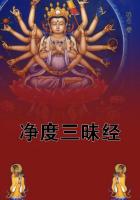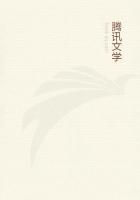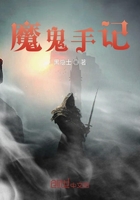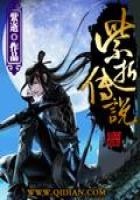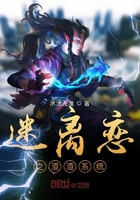He feared his father and respected him. Ignat's enormous size, his harsh, trumpet-like voice, his bearded face, his gray-haired head, his powerful, long arms and his flashing eyes--all these gave to Ignat the resemblance of the fairy-tale robbers.
Foma shuddered whenever he heard his voice or his heavy, firm steps; but when the father, smiling kind-heartedly, and talking playfully in a loud voice, took him upon his knees or threw him high up in the air with his big hands the boy's fear vanished.
Once, when the boy was about eight years old, he asked his father, who had returned from a long journey:
"Papa, where were you?"
"On the Volga."
"Were you robbing there?" asked Foma, softly.
"Wha-at?" Ignat drawled out, and his eyebrows contracted.
"Aren't you a robber, papa? I know it," said Foma, winking his eyes slyly, satisfied that he had already read the secret of his father's life.
"I am a merchant!" said Ignat, sternly, but after a moment's thought he smiled kind-heartedly and added: "And you are a little fool! I deal in corn, I run a line of steamers. Have you seen the 'Yermak'? Well, that is my steamer. And yours, too.""It is a very big one," said Foma with a sigh.
"Well, I'll buy you a small one while you are small yourself.
Shall I?"
"Very well," Foma assented, but after a thoughtful silence he again drawled out regretfully: "But I thought you were a robber or a giant.""I tell you I am a merchant!" repeated Ignat, insinuatingly, and there was something discontented and almost timorous in his glance at the disenchanted face of his son.
"Like Grandpa Fedor, the Kalatch baker?" asked Foma, having thought awhile.
"Well, yes, like him. Only I am richer than he. I have more money than Fedor.""Have you much money?"
Well, some people have still more."
"How many barrels do you have?"
"Of what?"
"Of money, I mean."
"Fool! Is money counted by the barrel?"
"How else?" exclaimed Foma, enthusiastically, and, turning his face toward his father, began to tell him quickly: "Maksimka, the robber, came once to a certain town and filled up twelve barrels with money belonging to some rich man there. And he took different silverware and robbed a church. And cut up a man with his sword and threw him down the steeple because he tried to sound an alarm.""Did your aunt tell you that?" asked Ignat admiring his son's enthusiasm.
"Yes! Why?"
"Nothing!" said Ignat, laughing. "So you thought your father was a robber.""And perhaps you were a robber long ago?"
Foma again returned to his theme, and it was evident on his face that he would be very glad to hear an affirmative answer.
"I was never a robber. Let that end it."
"Never?"
"I tell you I was not! What a queer little boy you are! Is it good to be a robber? They are all sinners, the robbers. They don't believe in God--they rob churches. They are all cursed in the churches. Yes. Look here, my son, you'll have to start to study soon. It is time; you'll soon be nine years old. Start with the help of God. You'll study during the winter and in spring I'll take you along with me on the Volga.""Will I go to school?" asked Foma, timidly.
"First you'll study at home with auntie." Soon after the boy would sit down near the table in the morning and, fingering the Slavonic alphabet, repeat after his aunt:
"Az, Buky, Vedy."
When they reached "bra, vra, gra, dra" for a long time the boy could not read these syllables without laughter. Foma succeeded easily in gaining knowledge, almost without any effort, and soon he was reading the first psalm of the first section of the psalter: "Blessed is the man that walketh not in the counsel of the ungodly.""That's it, my darling! So, Fomushka, that's right!" chimed in his aunt with emotion, enraptured by his progress.
"You're a fine fellow, Foma!" Ignat would approvingly say when informed of his son's progress. "We'll go to Astrakhan for fish in the spring, and toward autumn I'll send you to school!"The boy's life rolled onward, like a ball downhill. Being his teacher, his aunt was his playmate as well. Luba Mayakin used to come, and when with them, the old woman readily became one of them.
They played at "hide and seek and "blind man's buff;" the children were pleased and amused at seeing Anfisa, her eyes covered with a handkerchief, her arms outstretched, walking about the room carefully, and yet striking against chairs and tables, or looking for them in each and every commodious corner, saying:
"Eh, little rascals. Eh, rogues. Where have they hidden themselves? Eh?"And the sun shone cheerfully and playfully upon the old worn-out body, which yet retained a youthful soul, and upon the old life, that was adorning, according to its strength and abilities, the life-path of two children.
Ignat used to go to the Exchange early in the morning and sometimes stayed away until evening; in the evening he used to go to the town council or visiting or elsewhere. Sometimes he returned home intoxicated. At first Foma, on such occasions, ran from him and hid himself, then he became accustomed to it, and learned that his father was better when drunk than sober: he was kinder and plainer and was somewhat comical. If it happened at night, the boy was usually awakened by his trumpet-like voice:
"Anfisa! Dear sister! Let me in to my son; let me in to my successor!"And auntie answered him in a crying and reproachful voice:
"Go on. You better go to sleep, you cursed devil! Drunk again, eh?
You are gray already?"
"Anfisa! May I see my son, with one eye?" Foma knew that Anfisa would not let him in, and he again fell asleep in spite of the noise of their voices. But when Ignat came home intoxicated during the day he immediately seized his son with his enormous paws and carried him about the rooms, asking him with an intoxicated, happy laughter:
"Fomka! What do you wish? Speak! Presents? Playthings? Ask!


